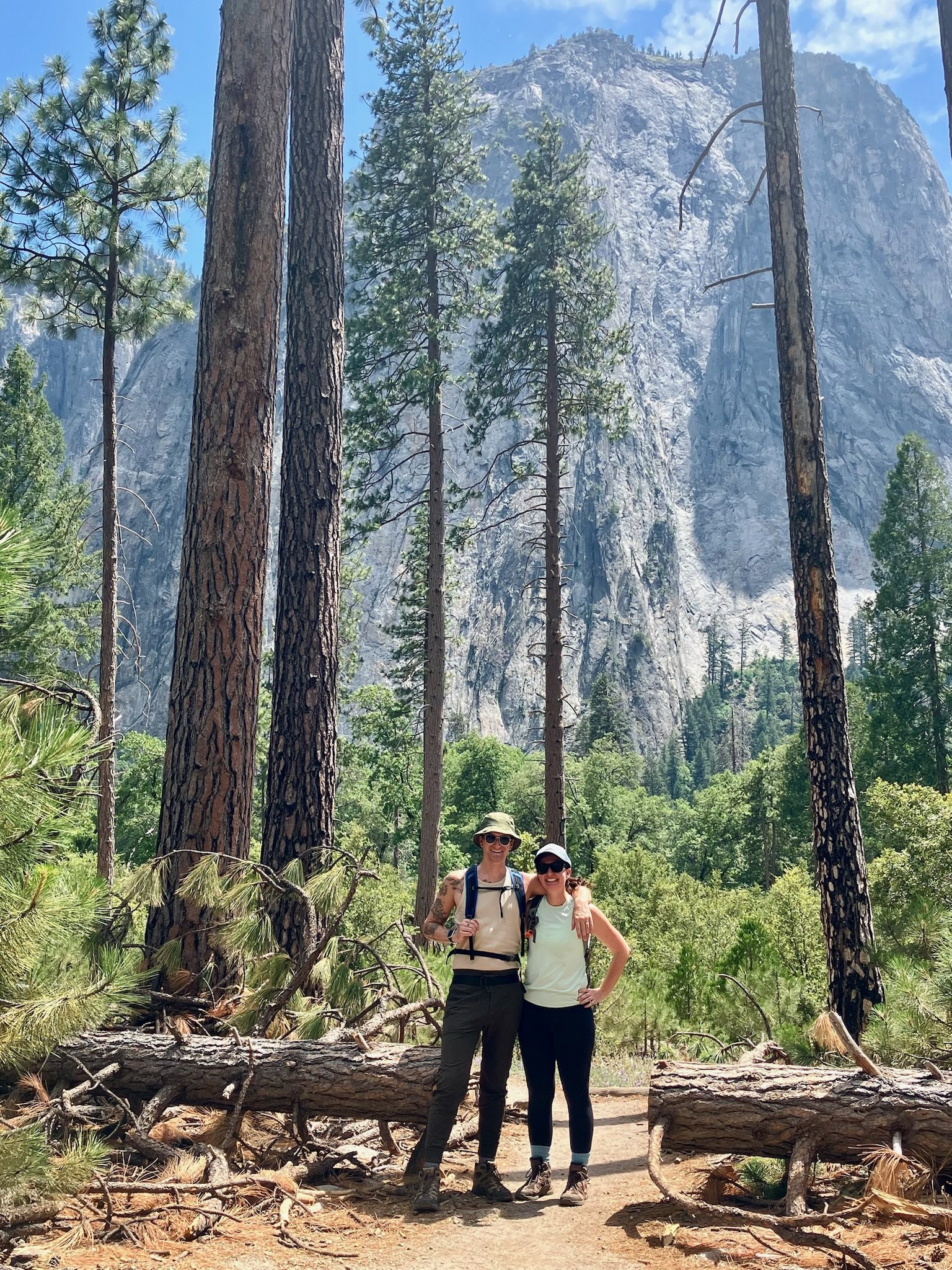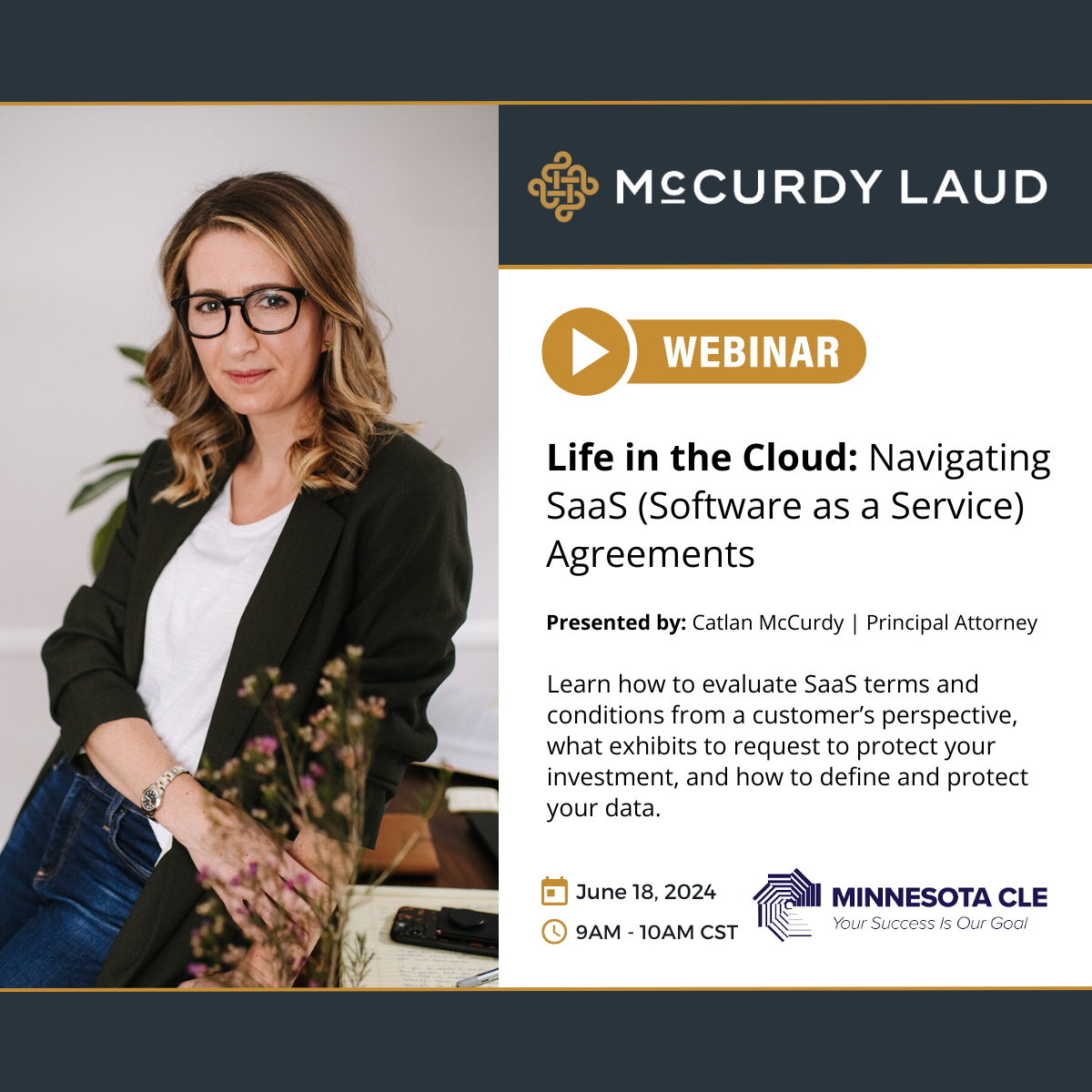Volume IX - July 2024
Firm Updates
BENCH & BAR CONFERENCE
Principal Attorney, Sanjiv Laud, attended the Federal Circuit Bar Association’s Bench & Bar Conference in Isle of Palms, SC. Highlights of the conference included catching up with old colleagues and friends and attending panel discussions with judges, practitioners, and in-house counsel. We cannot confirm or deny rumors of late-night karaoke. We can only say bring your A game to Napa next year.
TRAININGS
Founder and Principal Attorney, Catlan McCurdy, traveled to the Chicago area to provide an exclusive in-depth software license training and presentation for a valued client. With years of experience negotiating SaaS contracts and a passion for empowering business, Catlan delivered personalized guidance and equipped the team with strategies on navigating complex license agreements during her visit.
NATIONAL PARKS
Catlan and Chief of Operations, Max McCurdy, took time off to recharge on a sibling adventure to three National Parks in California: Yosemite, Sequoia, and Kings Canyon. Thank you to the rest of the team for their coverage and support.
MELISSA NELSON
McCurdy Laud welcomed new attorney, Melissa Nelson, to the firm back in February. Be sure to check out her updated bio and to congratulate her on her recent nuptials!
Firm Spotlight: McCurdy Laud
Minnesota CLE virtually hosted Catlan in June to teach a course on navigating SaaS contracts from the customer’s perspective. The course covered master services agreements, common exhibits such as service level agreements (SLAs), and advice on data protection standards. If you weren’t able to attend the course live, the recording will soon be available here for the next two years.
Current Cases: Core Optical Technologies, LLC v. Nokia Corporation
Core Optical Technologies, LLC v. Nokia Corporation is of a particular interest to McCurdy Laud given our sponsored academic research practice.
The US Court of Appeals for the Federal Circuit vacated and remanded a district court’s grant of summary judgment, finding that an invention assignment clause was subject to more than one interpretation.
Core Optical filed complaints against Nokia, Cisco and ADVA alleging patent infringement. Nokia moved for summary judgment based on the argument that Core Optical did not have standing, arguing that the inventor and founder of Core Optical had assigned the patent in question in an employment related agreement many years earlier, while participating in his former company’s sponsored PhD fellowship. The inventor admitted that his PhD research was “essentially identical” to the subject matter of the issued patent at hand. The inventor’s contract with his former employer required him to assign all inventions he developed at work to the company, but not those inventions created “entirely on his own time.” In granting summary judgment, the district court held that the invention assignment agreement’s carveout did not encompass the inventor’s PhD research, which undisputedly led to the invention claimed in the patent.
Ultimately, the Federal Circuit Court concluded that there was no legal authority dictating the district court’s opinion and that the invention assignment clause was capable of more than one reasonable interpretation. Thus, other factual findings were necessary based on the premise that the contract language itself did not resolve the matter.
So, what can we learn from this? Vagueness, while it can be useful, should be avoided in assignment agreements and the like. On its face, one would believe that since the company paid for the inventor’s PhD program, provided a stipend and salary, and required regular meetings with a company sponsor to discuss degree progress, that the company would be assigned inventions created in the course of employment, especially given the admission that the inventor’s PhD thesis was “essentially identical” to the patent. However, the ambiguity of the undefined phrase “entirely on one’s own time” flipped the case, muddying the waters, allowing room for interpretation. Was the inventor’s time working on his employer-sponsored thesis completely his own time or should that be considered company time? We’ll be following this case closely as it heads back to the district court.
Dear Paralegal Perry
Q: I’m delegating more of my company’s contract negotiations to my staff. How do I get them up to speed on navigating the contract process as non-lawyers?
A: There is a lot we could say here but they only throw me a column and a bone, so here are two things for you to chew on:
Educate your staff on the fact that lawyers are subject to special ethical rules that your staff should be aware of when scheduling meetings with the other contracting party; and
Make training resources available to your staff to develop their negotiation prowess.
It's crucial your team knows the American Bar Association's leash on lawyers—they can't have direct contact with someone who already has legal representation. Why should your pack care? Two words. Phone calls. Have you ever been on a call when only one team brought their legal beagle? The lawyer on the call has to drop off because it’s unethical for them to be present while the other team is not represented. All of a sudden the big negotiation call you thought you were going to have turns into a lot of “we’ll have to take that back to discuss.” Woof. Get more accomplished by determining before the call if the call will or will not include legal for both sides.
On the second point, there are some pawsitively fantastic negotiation resources available online and in print that your team could leverage from a range of price points. At McCurdy Laud, we know that knowledge is paw-er! Fetch these resources for your team and encourage them to lap up the knowledge. It'll help them become top dogs in negotiation! Here are some that we have enjoyed:
HBR's 10 Must Reads on Negotiation (Free on Audible)
Upcoming Events
07/04 | Independence Day
09/02 | Labor Day
09/15 | First Day of Hispanic Heritage Month
Note from Catlan
Every other Friday the McCurdy Laud team gathers for a meeting titled Innovation Time. What started as Catlan and Max sketching logos at the kitchen table (side note, how many great ideas have been first discussed at a kitchen table? We need a book on the innovative importance of the kitchen table…) has blossomed into a space where we collectively discuss the highs and lows of our past two weeks, current work, interesting court decisions, and new business ideas.
It’s my favorite meeting.
Not only because Max makes us cry laughing by imitating the sounds of his upstairs neighbors or Brittany’s sweet nieces or nephews sometimes make a guest appearance, but because we each have the freedom to say “Have you thought about using this tool…” or “I have an idea for a new service our clients might appreciate…” or “I think we could do X better if we Y…” I am so lucky to have colleagues who are freely forthcoming with their ideas. It makes our business better, our lives better, and our clients are better off for it.
If you are interested in creating a similar space for your employees - a place where ideas are always encouraged, whether or not they have been solicited - a place where ideas are always heard, even when you’re drowning in current work - consider implementing an invention incentive program. I’ve had the pleasure of creating these programs for clients, and the experience has been rewarding for all. Remember that innovation thrives in an environment where every voice is heard. Don’t overlook the worker in the field. They may have ideas that could transform your business if only given the chance to speak up. By creating incentives for employees and protections for your business, you are allowing for the possibility of something extraordinary.
And at the very least, you’ll get to know your employees that much better, like we have, and that might be the most rewarding part of all.






